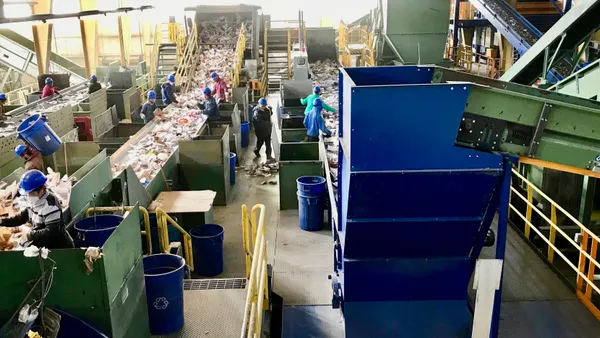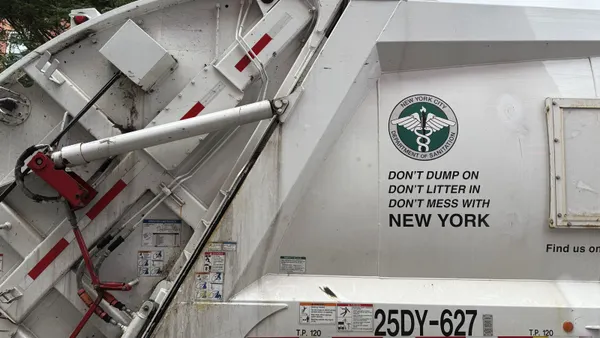Dive Brief:
- The New York City Council recently voted 38-9 to approve a bill (Intro 1527) that will establish a five-cent "paper carryout bag reduction fee" to accompany the upcoming statewide plastic bag ban.
- Following guidelines set forth in the state legislation, the city will receive two cents from every fee "for the purpose of purchasing and distributing reusable bags, with priority given to low- and fixed-income communities." Customers using various income assistance programs will be exempt from the fee entirely.
- The bill was quickly introduced, passed out of committee and brought for a full vote in response to the new state policy passed earlier this month. The paper bag fee, like the statewide plastic bag ban, will take effect in March 2020.
Dive Insight:
The backers of this particular bill have been pushing for a city bag policy since at least 2013, and appeared to have succeeded in 2016 when the measure passed in one of the council's tightest votes of the session. Yet a chain reaction of preemption by the state legislature and delayed promises for action from the governor paused any local movement on the policy until this spring. FY20 budget legislation established a statewide ban on plastic bags and offered local governments the option to go further (within certain parameters) and establish their own policies on paper bags.
That fresh opening, along with a shift in council membership and politics since 2016, led to the swift passage of a paper bag fee for the second time. Mayor Bill de Blasio has expressed support for the concept and is expected to sign the bill soon.
Tying plastic bag bans with a fee on alternatives is seen as critical to ensuring that stores and customers don't just switch to other options — which generally require more resources to produce — with a similar rate of consumption. California, the only other state with an official plastic bag ban, has a 10-cent fee on alternative bags. A bill was recently introduced in San Francisco to raise that city's fee to 25 cents and set tighter standards on bag exemptions and material composition.
In a nod to the underlying goal of New York's bag policies, the three-cent portion of any fee charged by local governments will go toward the purchase of reusable bags for statewide distribution. Any remaining funds, along with penalties and interest related to the fee, will go to the state's Environmental Protection Fund. If a new proposal to expand the state bag policy to cover restaurants and delivery services is successful this pool of funding could potentially grow even larger.
Despite this recent movement in New York and a growing number of municipalities around the country, statewide policy changes are still slow to come to fruition. While advocacy groups believe multiple New England states could be poised to pass their own bans, there is similar momentum to pass preemption laws elsewhere to join the list of nearly a dozen states that already have them in place.
While plastic and paper carryout bags in question may command outsized attention from legislators (relative to their share of the waste stream), they remain a key flashpoint for the ongoing effort to raise awareness about the value of reduction — not just recycling.










